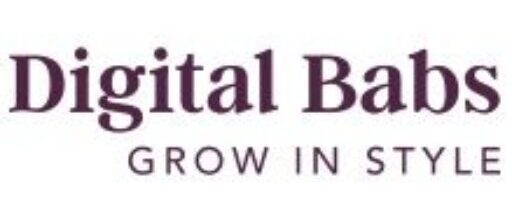15 Link Building Strategies That Build Authority and Bring Real Results (Ethical and Practical Methods).
Backlinks remain one of the strongest signals search engines use to rank websites and build authority. However, it’s no longer about collecting links in bulk. Today, the focus is on ethical, relevant, and high-quality links that genuinely reflect your site’s trustworthiness. The link building process has become more refined, with strategies centered on real value and careful outreach.
This post presents 15 practical, proven link building strategies that work in 2025. These methods prioritize quality over quantity and adapt to the changing ways search engines evaluate links. Whether you want to strengthen your site’s authority or improve rankings steadily, these strategies offer clear, actionable steps to help you get real results without shortcuts or risk.
Foundation Strategies: Building Links with Authenticity
Strong link building starts with authentic, thoughtful approaches that focus on real value and relevance. Instead of quick wins or spammy tactics, you want to create connections rooted in trust, usefulness, and authority. Below are foundational strategies that set your link profile on steady ground and encourage natural growth.
Guest Posting on Industry-Relevant Sites
Guest posting remains a key way to earn backlinks, but its success depends on choosing the right sites. Look for authoritative blogs and platforms within your niche where your target audience spends time. Use these steps:
- Identify authoritative sites by checking domain authority scores and their audience engagement.
- Analyze their content to understand what topics resonate and how formal or informal the tone is.
- Craft valuable content tailored to their readers. Your post should offer unique insights or helpful advice, not just sales pitches.
- Build relationships with editors through polite outreach emails. Personalize your pitch by referencing recent posts or common interests.
This approach secures backlinks that come from relevant, trusted sources, making them valuable for both search engines and readers. For a practical list of sites to approach, check out 80 Free Guest Posting Sites for 2025.
Creating Link-Worthy Content: Original Research and Data
Nothing attracts backlinks more naturally than original research. When you publish data-driven articles, surveys, or unique studies, other websites reference your work to support their own content. This type of content acts like a magnet for authoritative links.
Focus on what your audience wants to learn, then conduct surveys, collect statistics, or analyze trends you find. Examples include:
- Industry benchmarks or performance studies
- Survey results with actionable insights
- Data comparisons or infographics that simplify complex information
By sharing your findings, you become a go-to source, and your content earns organic links without begging for them.
Building Links Through Resource Pages and Directories
Resource pages are curated lists that offer readers useful tools, articles, or websites on specific topics. Finding niche-specific resource pages and legitimate directories can be an excellent way to earn relevant backlinks.
Look for pages that:
- Are well-maintained and updated regularly
- Cater specifically to your industry or niche
- Avoid spammy or irrelevant listings
You can usually find these by searching terms like “your niche + resources” or “your niche + directories”. Always vet these pages to avoid low-quality links. Getting listed on a respected niche directory not only boosts SEO but also drives targeted referral traffic.
Leveraging User-Generated Content
User-generated content (UGC) is a powerful and often overlooked link-building tactic. When customers, clients, or your community share reviews, testimonials, or forum posts related to your brand, these can attract natural backlinks.
Encourage your audience to:
- Leave genuine reviews on relevant platforms
- Submit stories or case studies about their experience
- Participate in discussions where your brand is mentioned
UGC builds social proof and offers new content that others might link to when referencing their experiences or opinions about your business.
Reclaiming Lost Links and Unlinked Mentions
The web moves fast, and sometimes important backlinks disappear or mentions of your brand go unlinked. Recovering these links can boost your authority without creating new content from scratch.
Start by:
- Tracking broken or lost backlinks with tools designed to monitor your link profile
- Searching for unlinked brand mentions online where your brand or website is referenced but not linked
Reach out politely to website owners or authors with a clear offer to provide the right link. Often, they’re happy to fix broken links or add your URL where your brand is mentioned. This process recovers valuable link equity while expanding your backlink profile.
These foundation strategies build authentic, strong links made to last. They focus on relevance, trust, and real value—elements Google rewards and visitors appreciate. Early efforts here prepare your site for long-term authority growth.
Advanced Outreach and Relationships
Building backlinks today means developing genuine, valuable relationships beyond simple link requests. When you tap into trusted networks, partnerships, and social proof, the links you earn carry weight and last longer. Advanced outreach techniques bring you closer to the people and communities that shape your industry’s conversations. This section covers how you can connect with influencers, engage in expert collaborations, reward advocates, and position your brand through events and public relations, all with backlinks naturally woven in.
Building Partnerships with Influencers and Industry Experts
Influencers and industry experts hold trust and authority with audiences you want to reach. Collaborating with them creates authentic ways to earn backlinks that benefit both sides. Here’s how to build these partnerships:
- Find the right influencers by researching those active in your niche with engaged followers and relevant content.
- Engage genuinely by commenting on their posts, sharing their work, or sending thoughtful messages before pitching collaborations.
- Offer true value such as guest content, expert interviews, joint webinars, or exclusive insights that fit their audience.
- Suggest natural backlink opportunities like featuring each other’s work in blog posts, resource lists, or social shoutouts.
Keep communication respectful and transparent. When influencers see real benefit, backlinks are part of a collaborative relationship, not a favor asked. This approach leads to trusted links that search engines recognize as genuine.
Participating in Industry Roundups and Expert Panels
Many blogs, publications, and podcasts showcase expert roundups to share diverse opinions on trending topics. Getting featured in these roundups can boost both your backlinks and credibility.
To get noticed:
- Identify platforms that publish regular expert roundups by following industry newsletters or searching for “expert roundup” and “industry panel” in your niche.
- Prepare concise, actionable insights or advice tailored to the roundup’s theme.
- Respond quickly and clearly to invitation requests or use cold outreach with examples of past contributions.
- Follow up with a thank-you and share the published piece widely to build a relationship for future opportunities.
Roundups highlight your expertise alongside peers, making the backlinks earned highly authoritative and contextually relevant. They also expose your brand to new audiences.
Affiliate Programs that Reward High-Quality Linking
Affiliate programs aren’t just about sales—they can also boost your backlink profile when partners and content creators link to your site.
Setting up an affiliate program with clear rewards encourages:
- Bloggers, influencers, and niche websites to promote your products or services with backlinks.
- Content creators to add honest reviews and how-to guides linking back naturally.
- Partners to share exclusive offers, driving traffic and clicks along with links.
Successful affiliate programs openly value quality traffic over spammy or forced linking. Build transparent terms and offer higher rewards for links from reputable sites. This keeps your backlink profile healthy and focused on genuine endorsements.
Hosting or Spon soring Webinars and Events
Events create opportunities for backlinks that most businesses overlook. When you host or sponsor webinars, conferences, or even local meetups, the publicity often produces mentions and links from participating organizations, press coverage, and attendees’ content.
How to maximize event backlinks:
- Partner with relevant communities or influencers in your niche to co-host or promote the event.
- Provide speakers or content that link back to your website in event pages, social media, and recap articles.
- Encourage attendees and partners to share their experiences online with links to your site.
- Use event registration pages, press releases, and follow-up content as link anchors.
Events show your leadership in the field and create lasting digital footprints with a network effect driving natural links.
Engaging in Digital Public Relations
Digital PR is about telling stories that news outlets, blogs, and media want to cover, naturally attracting backlinks from authoritative sources. The key is to create newsworthy content or seize trending topics early.
Effective tactics include:
- Newsjacking: Jump on relevant current events by adding your expert opinion or data to make your site part of the conversation.
- Press Releases: Announce noteworthy business developments, such as product launches or strategic partnerships, distributed to relevant journalists and media.
- Storytelling: Build compelling narratives with data, customer success stories, or unique angles that journalism sites find valuable.
These efforts result in natural media backlinks, broad brand exposure, and often traffic spikes. To stay informed, tools like HARO connect you with journalists looking for expert quotes, which is an excellent resource for digital PR efforts.
These advanced outreach techniques turn link building into lasting relationships and authentic brand authority. By focusing efforts on real people, events, and stories, you attract backlinks that reflect your true value.
Technical and Tactical Link Building Techniques
When you want to strengthen your backlink portfolio beyond the basics, it’s time to focus on technical and tactical methods. These strategies require a bit more effort and know-how but yield valuable, lasting links that improve not just rankings but also your site’s authority and trustworthiness. Here are some tactical approaches to add diversity and depth to your link building.
Broken Link Building to Fill Gaps
Broken link building works like fixing a road that’s been closed down. Imagine finding relevant pages within your niche that link to resources no longer available. These dead ends frustrate users and weaken site authority for the page owner. Here’s where you step in with your own content as a ready replacement.
Start by scanning authoritative sites for broken links using tools like Ahrefs or Check My Links. Once you identify dead links, create content that matches or improves on the original resource. Reach out to the site owner with a polite message showing the broken link and suggesting your page as an updated solution. This technique makes it easy for webmasters to maintain their site quality while you gain a relevant, powerful backlink.
This approach benefits both sides and often has a high success rate because you’re solving a real problem. To learn a detailed workflow, Backlinko’s guide on broken link building offers practical tips and outreach templates.
Niche Edits and Contextual Backlinks
Niche edits are one of the most natural ways to earn backlinks, fitting like whitespace in the right paragraph rather than shouting out a commercial plug. The idea is to find existing, relevant articles on trusted websites and have your link added where it adds value to the content.
Instead of demanding a new post, you’ll propose a contextual link that flows within the article’s topic. This requires a careful, ethical approach. First, identify posts where your resource complements or updates the information. Next, contact the site owner explaining how your link enhances the user experience.
When done thoughtfully, niche edits create backlinks that seem native, trusted by Google and visitors alike. This strategy often involves less effort than new content creation and maintains a high level of link quality by sticking to relevant, authoritative sites.
Tiered Link Building for Long-Term Growth
Tiered link building acts like a support system for your main backlinks. Imagine your primary links at the first tier getting extra boost from links pointing to them in secondary and even tertiary tiers. This structure transfers link equity more safely and gradually without direct risk to your main site.
Typically, the first tier consists of high-quality backlinks. The second tier supports those backlinks with slightly lower-tier but still relevant links, spreading the “link juice” at a controlled pace. This layered approach helps amplify the power of your primary links without triggering penalties from search engines.
Effective tiered linking demands a balance between quantity and quality on each level to avoid spammy footprints. This method fits well into long-term SEO campaigns focused on steadily increasing authority behind the scenes.
Using AI Tools to Streamline Outreach and Prospecting
Manual outreach can be time-consuming and inconsistent, but AI-driven platforms change the game by making the entire process more efficient and personalized. These tools analyze website data, find the best contact prospects, and even auto-generate tailored email scripts that improve your chances of success.
The benefits include:
- Quickly discovering high-value outreach targets based on niche, authority, and traffic metrics.
- Personalizing emails using AI suggestions to avoid generic, spammy tones.
- Tracking the status of outreach campaigns, follow-ups, and response rates automatically.
By automating tedious tasks and offering data-driven insights, AI tools maximize your link building outreach impact while saving time. Using these platforms smartly helps keep your campaigns consistent without losing the human touch that builds trust.
Leveraging Podcast Sponsorships and Interviews
Podcasts are rich untapped sources of authoritative backlinks and brand exposure. When you sponsor or participate in interviews on podcasts related to your industry, you often receive links from the show’s website or episode notes.
Podcasts attract engaged, niche-specific audiences, making them ideal for spreading your brand and earning relevant backlinks. To get started:
- Identify podcasts with listeners that match your target demographic.
- Reach out with sponsorship proposals or offer expert insights for interviews.
- Share the episodes widely across your channels to amplify the backlink’s value.
This strategy builds brand recognition and trust while naturally generating backlinks from domains with strong relevance and authority. Podcast backlinks tend to have long shelf lives and provide steady referral traffic, adding extra benefit beyond SEO.
These technical and tactical link building techniques refine your outreach and build a strong, diverse backlink foundation with depth and authority. They complement your earlier strategies by introducing precision, creativity, and smart resource use that pays off over time. If you want more details on broken link building, here’s a practical resource you might find useful: Broken link building techniques and tactics.







